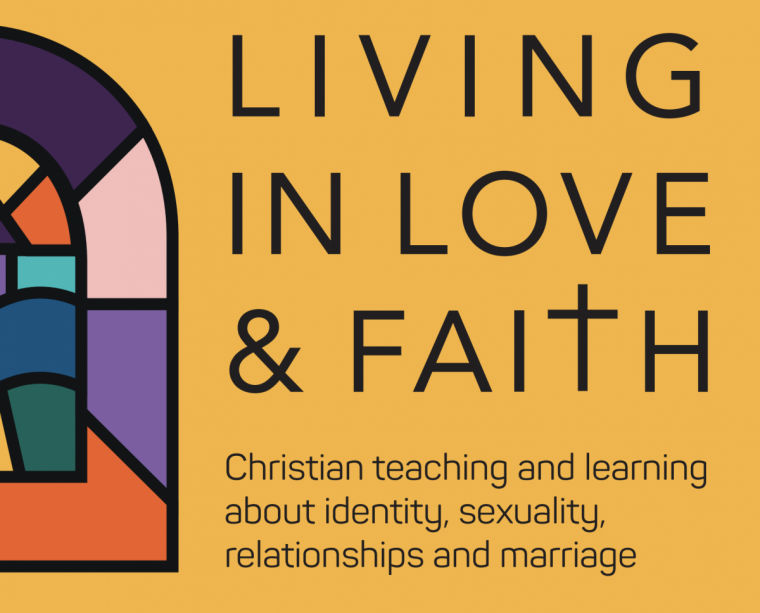Church of England publishes landmark resources on sexuality and relationships

The Church of England has published its long-awaited resources on identity, sexuality, relationships and marriage.
Living in Love and Faith (LLF) is three years in the making and calls on the Church to "listen and learn together" in wrestling with what have been divisive issues among Anglicans.
It marks an attempt by the Church to find a constructive way forward after years of disagreements over the issue of human sexuality.
The Church has been keen to stress that LLF is not only about same-sex relationships but also explores other areas like transgenderism and gender identity, intersex, a-sexuality and heterosexuality.
LLF is not intended to be a report or policy statement but rather a suite of resources to support a Church-wide "learning journey" around the issues.
Over 40 people with a range of different views have worked together on LLF over the last three years under the leadership of the Bishop of Coventry, Christopher Cocksworth.
They have produced a number of resources bringing together real-life stories, as well as perspectives from the Bible, theology, science and history.
The resources include a 480-page book, a series of films and podcasts, a course and an online library of other publications relating to the areas covered by LLF.
In a foreword to the resources, the Archbishop of Canterbury, Justin Welby, and Archbishop of York, Stephen Cottrell, apologised for the "huge damage and hurt" that has been caused particularly to LGBTI+ people within the Church.
"At the heart of our failure is the absence of a genuine love for those whom God loves in Christ, knowing as God does every aspect of all of our lives," they write.
"Our prayer for the Church through this work is that collectively we demonstrate the same love to one another that we have experienced from God."
Churches will be encouraged to engage with the LLF resources throughout 2021 and, in particular, to do the companion five-session course over Lent. Although the resources can be used individually, the Church is encouraging people to study them together in groups.
Launching the resources today, the House of Bishops appealed to the whole Church to participate in learning together and using the resources for "open, honest and gracious discussion, listening and learning".
Explaining the inspiration for LLF, Bishop Cocksworth said the Church needed to get away from a "single issue approach" to the longstanding divisions.
He said the process had brought together people who "really disagree" with each other, as he called the resources the "fruit of an extraordinary collaborative process".
"Gay, straight, trans people together. We wanted to work this out together because we wanted the Church to work this out together with faith and love," he said.
He continued: "This has involved intense and prayerful study and reflection as well as listening to as wide a range of voices and experiences as possible.
"Our hope is that through them people will be inspired by the Bible's glorious and joyful vision of God's intention for human life.
"Questions of identity, sexuality, relationships and marriage are deeply personal with real life consequences. Engaging with these resources will be enriching and, at different points for different people, deeply challenging and uncomfortable.
"They ask us to examine afresh what it means for Christians to live in love and faith.
"We offer them in the hope that the whole of the Church of England will embrace this opportunity to learn and reflect together across difference for the sake of our unity in Christ."
LLF Project Coordinator Eeva John said the divisions over sexuality in the Church had been "deep and painful", and that Anglicans needed to acknowledge their "prejudices" and "hypocrisy".
"We need to see our disagreements in a new light so that we can find a way forward as a Church together," she said.
The Bishop of London, Sarah Mullally, will now lead a process of discernment and a 'Next Steps Group' that will consider if and when certain actions need to be taken in response to the LLF resources.
Churches have until November 2021 to respond to the LLF resources through diocesan advocates, with a view to further work by the Next Steps Group taking this feedback into consideration being completed by the end of 2022.
This work by the group will include considering different "ecclesial outcomes" and the possibility of proposing business to the Church's parliamentary body, General Synod.
Bishop Mullally said she had "no idea" what those outcomes would look like and that the present focus was on encouraging meaningful engagement across the Church with the LLF resources.
The Next Steps Group is comprised of 12 bishops including the Bishop of Truro, Philip Mounstephen, the Bishop of Maidstone, Rod Thomas, the Bishop of Warrington, Beverley Mason, and the Bishop of Winchester, Tim Dakin.
Bishop Mullally said: "The challenges of the pandemic have underlined how we need each other more than ever.
"At the same time, we can see how deeply divided the Church is over these questions, and we must seek God's will by learning together, listening to each other and to God.
"We will encourage and support churches to do this in ways appropriate to their local contexts over the coming year, inviting people to reflect on their learning, both as groups and individually.
"This must be a meaningful process with a clear way forward.
"However, it will not succeed without love, grace, kindness and compassion."











